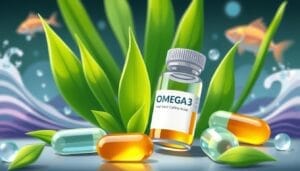Hey there, amazing new mama! You’ve just accomplished something incredible, bringing a whole new life into the world. But amidst the tiny socks and endless cuddles, are you feeling… not quite yourself? Maybe the joy feels overshadowed by a persistent cloud, a weight that just won’t lift. If that resonates, you’re definitely not alone.
Around 1 in 7 women experience postpartum depression, according to the CDC. And shockingly, only 15% receive proper treatment. Many mothers suffer in silence, thinking it’s just “baby blues.” But what if there’s more to it? Could certain vitamins for postpartum depression actually make a difference?
In this blog, we’ll explore how nutrition affects postpartum mental health. We’ll look at what science says, which vitamins are helpful, and how they fit into a new mom’s daily routine. Most importantly, we’ll discuss whether these supplements are safe, effective, and truly worth trying.
Table of Contents
ToggleWhat is Postpartum Depression?
Postpartum depression is a mood disorder that can affect women after childbirth. Unlike the “baby blues,” which usually resolve within a few days, PPD is more intense and lasts longer. It can interfere with a mother’s ability to care for herself and her baby.
How Common is Postpartum Depression in New Mothers?
Postpartum depression can happen anywhere in the world, but rates vary. In the U.S., about 14% to 20% of women report symptoms. In India, it can go up to 22% or more, especially in rural areas with limited healthcare access.
Common emotional signs include:
- Feeling hopeless or worthless
- Mood swings
- Crying often for no clear reason
Physical symptoms might be:
- Fatigue that doesn’t go away
- Poor sleep even when the baby sleeps
- Changes in appetite
These are not signs of weakness. They’re signals that your body and brain need help.
What Are the Biological and Hormonal Triggers Behind It?
Right after childbirth, hormone levels drop rapidly. This sudden shift can trigger emotional symptoms in sensitive individuals.
- Estrogen and progesterone drop significantly after birth, affecting mood balance.
- Sleep deprivation makes it harder for the brain to recover and regulate emotions.
- Nutritional depletion is common after pregnancy and delivery, especially iron, B12, and vitamin D.
These factors together may overload the nervous system.
Can Vitamins Help with Postpartum Depression Symptoms?
While vitamins alone can’t treat major depression, they can support brain health and mood regulation. Let’s see how they connect.
What’s the Scientific Link Between Nutrients and Mental Health?
Vitamins act like fuel for the brain.
- They help make neurotransmitters like serotonin and dopamine, which control mood.
- Certain vitamins like B6, B9 (folate), and B12 support nerve signals.
- Lack of vitamins can cause neuroinflammation, which worsens depression.
A healthy brain needs the right nutrients every day to function properly.
Are Vitamins a Replacement or a Complement to Therapy?
Vitamins are not a replacement for therapy or medications when needed. But they can be helpful add-ons.
- Many doctors now support integrative models, combining therapy, lifestyle, and nutrition.
- Some studies show vitamins work better alongside SSRIs (common antidepressants) than alone.
So yes, vitamins for postpartum depression may help, but they work best when part of a bigger plan.
Key Vitamins for Postpartum Depression
1. Vitamin D
Did you know that 94% of new moms are Vitamin D deficient? (JAMA study). That’s huge.
- Vitamin D helps manage serotonin, the “feel-good” hormone.
- It can improve mood, especially if low levels are detected.
- It’s also linked to seasonal depression, so low sunlight = low mood.
Sunlight helps but may not be enough. Supplements might be needed, especially in winter.
- Sources : Sunlight, fortified dairy, egg yolks, fatty fish
- Recommended Intake : 600–800 IU/day
2. Vitamin B Complex

B vitamins affect your nervous system directly.
- B6 helps make serotonin, B9 (folate) supports dopamine.
- B12 is key for nerve health and energy.
- If you have an MTHFR gene mutation, methylated B vitamins work better.
Low B vitamins = low mood, poor focus, fatigue.
- Sources : Leafy greens, whole grains, poultry, legumes
- Recommended Intake : 50–100 mg/day (supplement form)
Supplementing with a high-quality B-complex can support emotional stability and reduce the risk of PPD.
Can Omega-3 Fatty Acids Reduce Depression After Birth?

Omega-3 fatty acids—especially EPA (eicosapentaenoic acid) and DHA (docosahexaenoic acid) —have anti-inflammatory properties and support brain health.
Research Findings:
- Women with low omega-3 levels are more likely to experience postpartum depression
- EPA-rich supplements may be more effective than DHA-only formulas
- Benefits are often seen with dosages of 1,000–2,000 mg/day
Natural Sources:
- Fatty fish (salmon, mackerel, sardines)
- Walnuts
- Flaxseeds
Supplements are generally well-tolerated but should be taken under medical guidance, especially if you are on blood thinners.
Recommended Dosages and Potential Side Effects
While vitamins are natural, they’re not always risk-free. It’s essential to consult a healthcare provider before starting any supplements.
| Nutrient | Recommended Dose | Possible Side Effects |
| Vitamin D | 600–800 IU/day | Nausea, fatigue (at very high doses) |
| Vitamin B Complex | 50–100 mg/day | Headaches, GI upset, skin reactions |
| Omega-3 (EPA/DHA) | 1,000–2,000 mg/day | Mild GI issues, fishy aftertaste |
| Selenium (optional) | 50–200 mcg/day | Hair loss, nail changes (in excess) |
Always monitor for side effects and interact with your doctor to tailor your supplement plan.
Dietary Sources of Essential Nutrients
While supplements help, your first line of defense should be a nutrient-dense diet . Whole foods provide additional antioxidants and enzymes that work synergistically with vitamins.
| Nutrient | Best Foods |
| Vitamin D | Salmon, sardines, fortified milk, egg yolks |
| B Vitamins | Spinach, quinoa, chicken, lentils |
| Omega-3 | Salmon, chia seeds, walnuts, flaxseeds |
Balanced nutrition fuels your brain, improves your mood, and supports postpartum recovery.
What’s the Best Time to Take These Vitamins for Maximum Absorption?
Timing matters.
- Fat-soluble vitamins (A, D, E, K) need to be taken with food.
- Water-soluble vitamins (B, C) can be taken anytime but better with meals.
- Iron is best on an empty stomach but may cause nausea.
Spacing out doses can improve absorption and reduce side effects.
The Role of Exercise
Exercise has proven mental health benefits. Even light physical activity can reduce stress and boost mood. For postpartum women, this might include:
- Walking
- Postnatal yoga
- Swimming
- Gentle stretching
Benefits:
- Releases endorphins
- Reduces cortisol (stress hormone)
- Boosts energy levels and confidence
Start slowly and build a routine that suits your new life as a parent.
When to Seek Professional Help
While lifestyle changes and vitamins can be beneficial, they are not replacements for professional care . Seek medical help if:
- Symptoms persist or worsen
- You experience suicidal thoughts
- You’re unable to function day to day
- Bonding with your baby feels impossible
Treatment may include therapy, medication, or a referral to a psychiatrist specializing in postpartum care.
Lifestyle Changes to Support Mental Health
Stress Management
Daily stress-reducing activities—like meditation, deep breathing, and journaling—can protect your mental health.
Support System
Connect with:
- Family and friends
- Postpartum support groups
- Mental health professionals
Self-Care Tips
- Prioritize sleep
- Stay hydrated
- Take time for activities that bring joy
A strong support system and self-care plan can significantly ease the journey through postpartum depression.
How Dr. Chandril Chugh Helps You Find the Right Vitamin Plan
Postpartum depression is real. It’s not your fault. And you’re not alone.
If you’re struggling, don’t wait. Vitamins for postpartum depression can be part of your recovery plan, but professional guidance matters. As a US-trained neurologist, Dr. Chandril Chugh brings expertise in brain health.
He will:
- Review your lab results
- Recommend the best vitamins for depression after birth
- Help build a plan that supports your body and mind
Book your consultation with Dr. Chandril Chugh today and take the first step toward feeling like yourself again.
Frequently Asked Questions (FAQ)
What vitamin is good for postpartum depression?
Vitamin D, B-complex vitamins, and omega-3 fatty acids are most commonly linked with improving symptoms of postpartum depression.
How to reduce postpartum depression?
A combination of therapy, nutrition, supplements, exercise, and professional support can help reduce the symptoms of postpartum depression.
What vitamins should I take after postpartum?
Speak with a doctor, but commonly recommended vitamins include Vitamin D, B-complex, omega-3s, and sometimes iron or selenium, depending on individual deficiencies.
How to help postpartum depression naturally?
Eat a balanced diet, take targeted supplements, get regular exercise, reduce stress, and build a strong emotional support network.
What is the best medicine for postpartum depression?
Doctors may prescribe antidepressants such as SSRIs. These should be taken only under medical supervision. Vitamins may be used alongside medication—not as a replacement.
About The Author

Medically reviewed by Dr. Chandril Chugh, MD, DM (Neurology)
Board-Certified Neurologist
Dr. Chandril Chugh is a U.S.-trained, board-certified neurologist with expertise in diagnosing and managing neurological disorders, including migraines, epilepsy, Parkinson’s disease, and movement disorders. His clinical focus includes evidence-based neurological care and patient education.
All content is reviewed for medical accuracy and aligned with current neurological guidelines.




